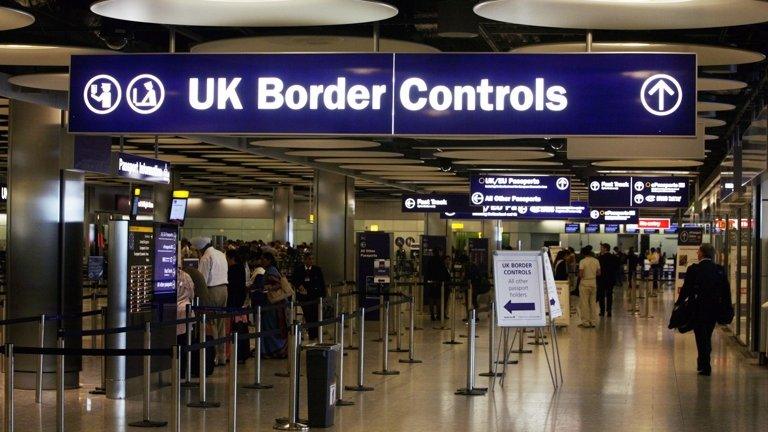Curbs on EU benefits to come into force on 1 January
- Published
- comments
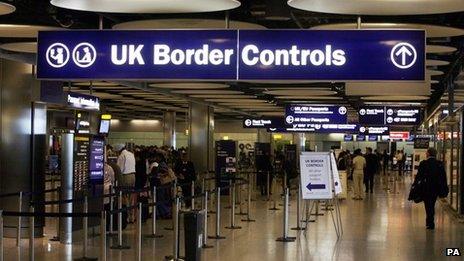
New rules on how long EU jobseekers will have to wait to claim benefits are to be brought in early, No 10 has said.
The change to a three-month wait before EU citizens can apply for UK out-of-work benefits is being rushed through Parliament to start on 1 January.
It coincides with the date people from both Romania and Bulgaria will be able to work in the UK without restrictions.
David Cameron said the move sent a "clear message", but Labour said it had been left to the "very last minute".
'Phantom measures'
But critics say EU rules already mean residents of one country are not expected to claim benefits in another for their first three months there.
Jonathan Portes, director of the National Institute of Economic and Social Research, said the government was bringing in "phantom measures to combat a phantom problem".
Measures to restrict so-called benefit tourism - backed by the Liberal Democrats - were announced last month amid concerns about a possible influx of Romanians and Bulgarians when they gain full rights to work in the UK at the start of 2014.
Work and Pensions Secretary Iain Duncan Smith: "We are saying to people, benefit tourism is out"
It is not known how many will come. There are currently more than 100,000 working in the country.
Under regulations being tabled in Parliament on Wednesday, migrants from all EU states will have to wait for three months before applying for Jobseeker's Allowance and other out-of-work benefits.
'Direct action'
When the new restriction was announced, Downing Street said it was unlikely it would be in place in time for the 1 January deadline - when transitional controls on Bulgaria and Romanian workers in place since 2007 expire.
But it is now being pushed through Parliament before it rises for the Christmas recess on Thursday to enable that to happen.
Mr Cameron said the government was acting on public concerns that some migrants from across the EU were coming to the UK to take advantage of the welfare system and public services like the NHS.
"As part of our long-term plan for the economy, we are taking direct action to fix the welfare and immigration systems so we will end the something-for-nothing culture and deliver for people who play by the rules," he said.
"Accelerating the start of these new restrictions will make the UK a less attractive place for EU migrants who want to come here and try to live off the state.
"I want to send the clear message that, whilst Britain is very much open for business, we will not welcome people who don't want to contribute."
'Chaotic'
EU rules allow benefit recipients to receive payments from their home country for three months when they move.
Those wishing to do so have to fill out a form authorising the "export" of their benefits. However those staying longer than three months in another country without finding a job or getting an extension will lose their entitlements.
Mr Portes told BBC Radio 4's Today programme the government had not released figures showing the number of immigrants claiming UK benefits during their first three months in the country.
He said: "It's possible it will undermine their case or that they're not interested - that they don't really care if the policy has an impact at all and they just want something to announce. It's one or the other."
Mr Portes also said: "It's a bit of a mystery. A number of people have described these measures as phantom measures to combat a phantom problem. That seems to me to be about right."
For Labour, shadow home secretary Yvette Cooper said she had called for the changes to be put in place nine months ago but they were being introduced in a "chaotic" fashion.
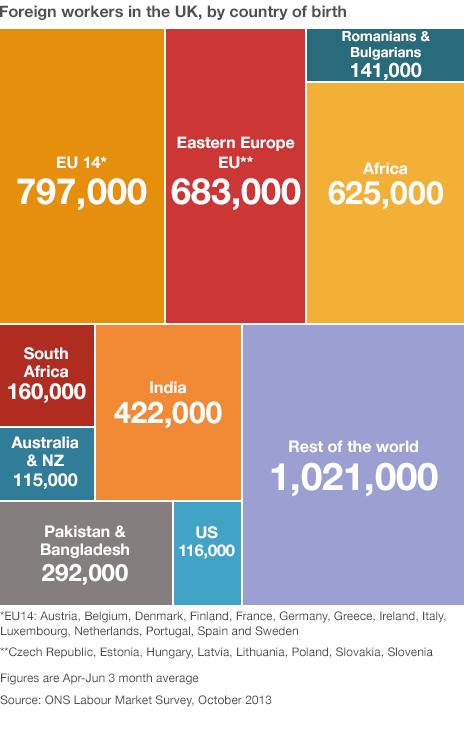
"David Cameron has left it until the very last minute to squeeze this change in," she said.
Other changes announced by the prime minister last month included:
Only those who can provide compelling evidence that they have a genuine chance of finding work being allowed to continue claiming benefits after six months.
Beefing up the "habitual residence" eligibility test for claimants
Preventing people who have been removed for begging or sleeping rough from returning for 12 months
Increasing fines for businesses found not to be paying the national minimum wage
UK ministers have declined to say how many people they expect to come to the UK following the lifting of controls but Bulgarian officials say they expect about 8,000 of their citizens to make the move every year.
Shadow immigration minster David Hanson says the government needs to "do more" to tackle issues with migrant workers
Pressure group MigrationWatch UK says the figure will be much higher and it expects 50,000 people to come from Bulgaria and Romania each year for the next five years.
Bulgarians and Romanians in self-employed jobs and those employed in certain sectors such as agriculture and food manufacturing have been able to live and work in the UK for the past six years.
Transitional arrangements in other EU countries will also come to an end on 1 January.
UK Independence Party leader Nigel Farage urged Mr Cameron to bring up the issue at this week's Brussels summit of EU leaders, calling it the "last chance for the prime minister to act on Bulgarian and Romanian immigration into the UK".
He added: "He must tell fellow EU leaders that the UK will not unconditionally open its border to Bulgaria and Romania on 1 January."
A YouGov survey for the Sun newspaper on Wednesday suggested that 42% of people thought it was of "utmost importance" for the prime minister to limit immigration from EU countries.
Some 43% of the more than 2,600 people polled said they would vote to leave the EU if a referendum was held now - 37% said no.
But more than half said they would vote against leaving the EU if Mr Cameron secured a major renegotiation of the UK's relationship with Brussels.
- Published14 May 2014
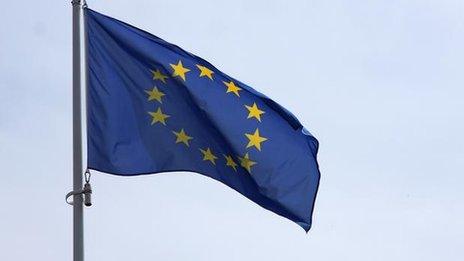
- Published18 December 2013
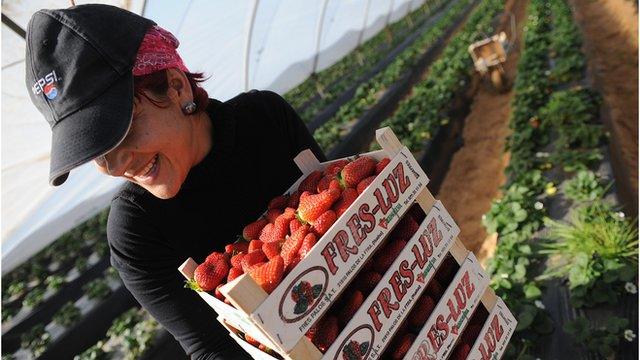
- Published18 December 2013
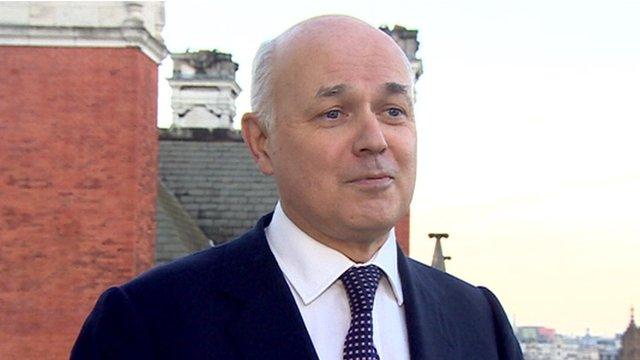
- Published3 November 2014

- Published27 November 2013
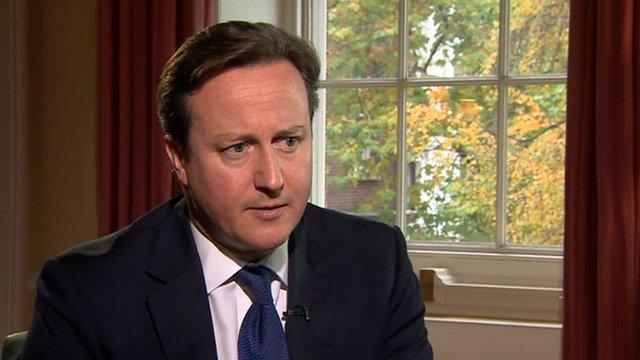
- Published28 November 2014
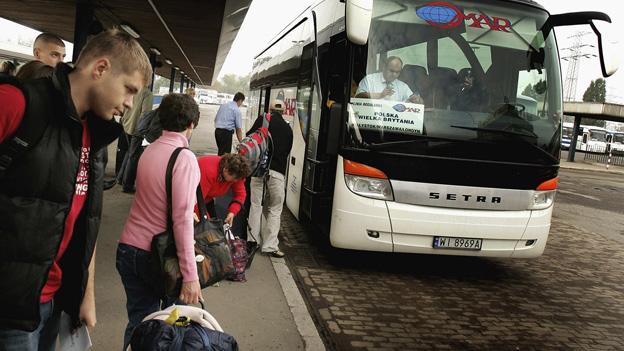
- Published25 November 2013
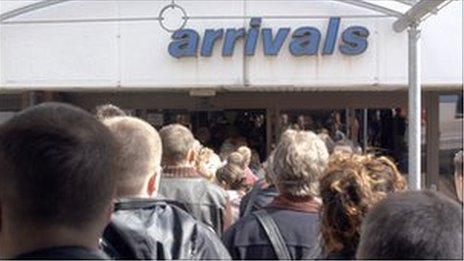
- Published29 November 2013
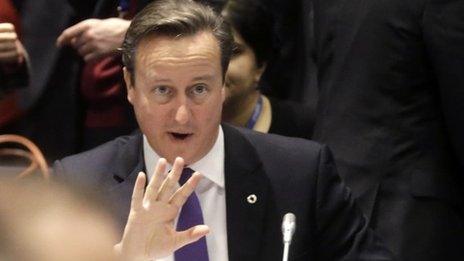
- Published22 October 2013
